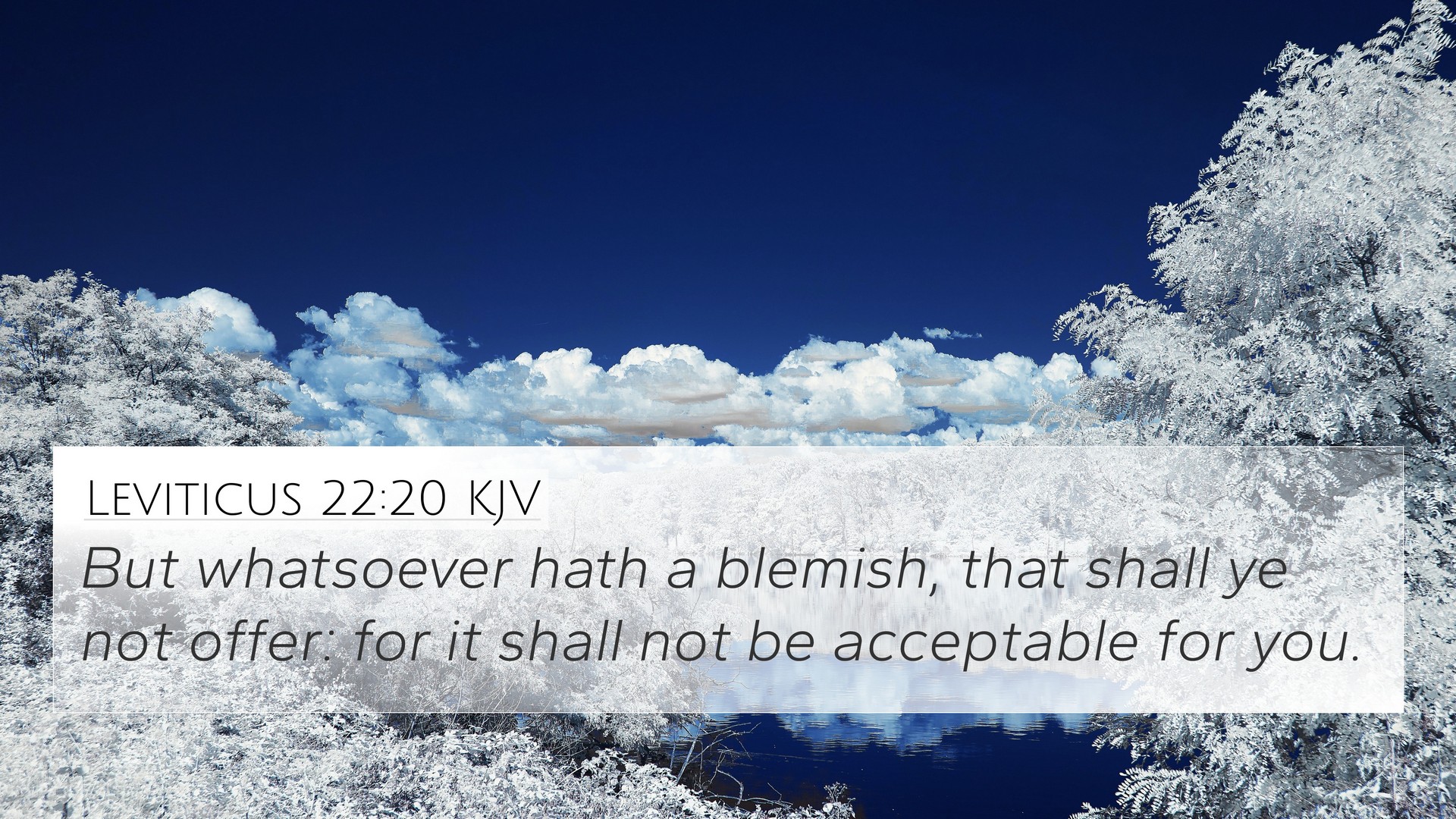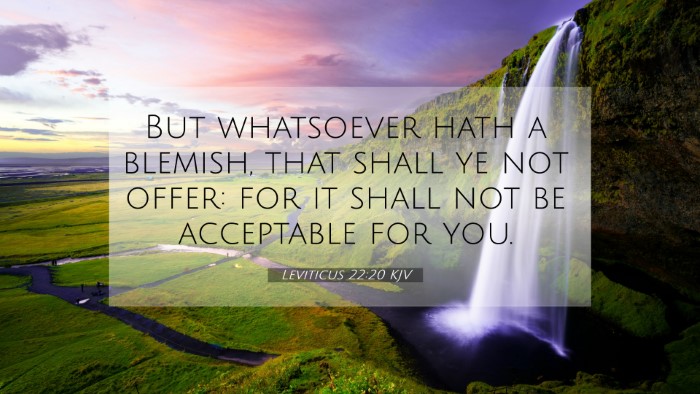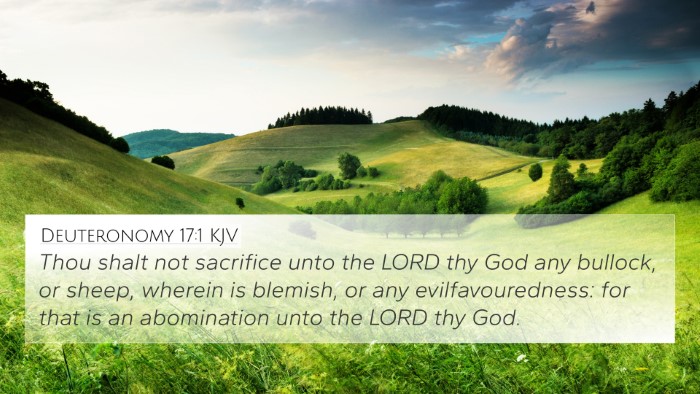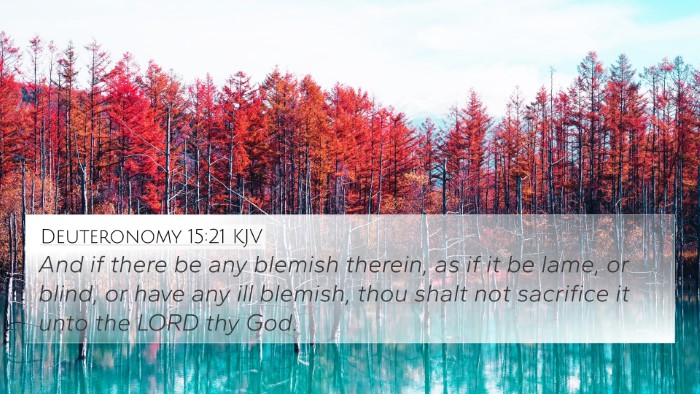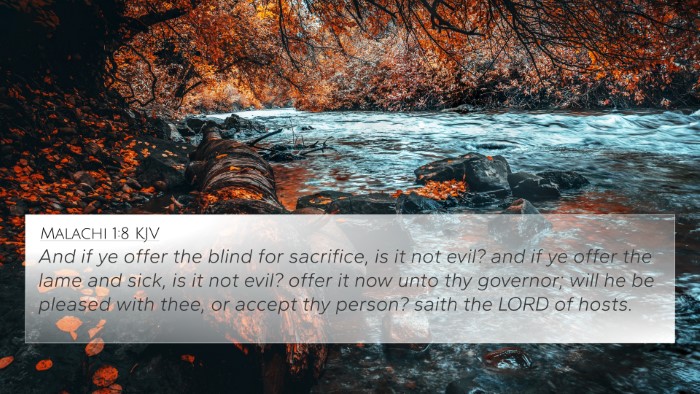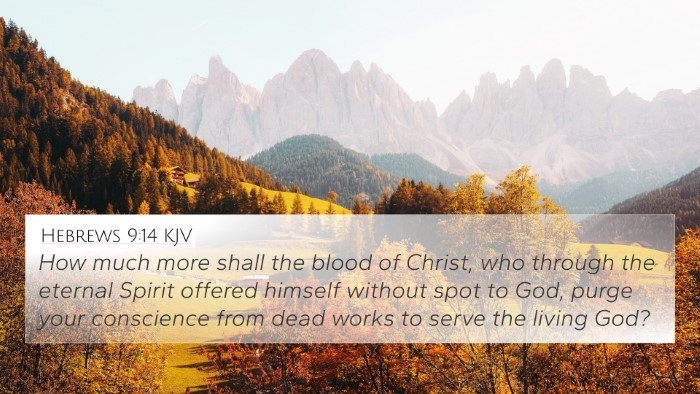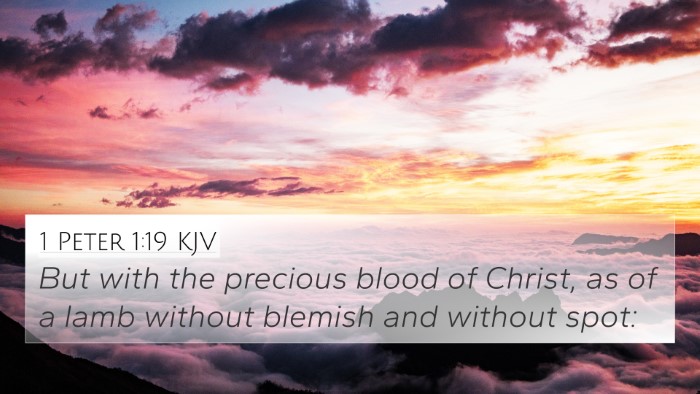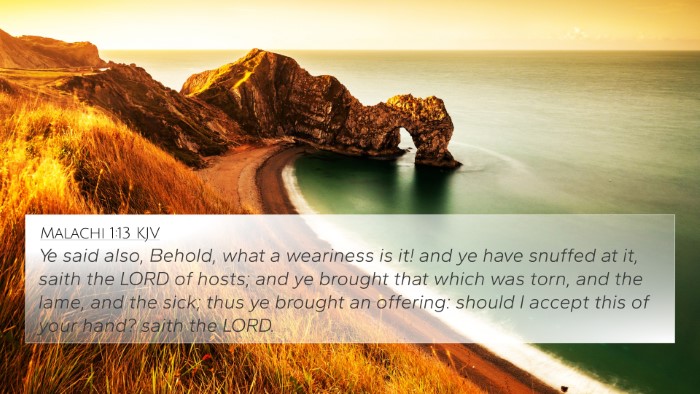Understanding Leviticus 22:20
Verse Reference: Leviticus 22:20
This verse states: "But whatsoever hath a blemish, that shall ye not offer: for it shall not be acceptable for you." Through careful interpretation, various public domain commentaries provide profound insights into this directive.
Summary of Commentary Insights
The central theme of Leviticus 22:20 focuses on the requirement for offering unblemished sacrifices, symbolizing purity and acceptance before God. This was critical in the Israelite sacrificial system, as offerings reflected one's devotion and relationship with the Lord.
Key Interpretations
-
Matthew Henry:
Henry emphasizes the holiness required in worship. He illustrates that offering blemished sacrifices not only reflects a lack of reverence but also symbolizes an inner moral blemish. Worship must stem from purity, as God seeks a sincere heart.
-
Albert Barnes:
Barnes points to the importance of the sacrificial system in maintaining the covenant relationship between God and Israel. He notes that defects in sacrificial animals symbolize spiritual defects in worshippers, reminding them to present their best to God.
-
Adam Clarke:
Clarke expands the idea of offering blemished sacrifices, explaining that it was an abomination before God. He connects this to the importance of moral integrity and the need for believers to offer their lives as living sacrifices, emphasizing the necessity of spiritual cleanliness.
Bible Verse Cross-References
This verse connects with numerous other scripture passages that reinforce its themes of purity and commitment in worship. Here are some relevant cross-references:
- Exodus 12:5: "Your lamb shall be without blemish, a male of the first year..." - Denoting the necessity of perfection in sacrifices.
- Deuteronomy 17:1: "Thou shalt not sacrifice unto the Lord thy God any bullock, or sheep, wherein is blemish..." - Reinforcing the prohibition against improper offerings.
- Malachi 1:8: "And if ye offer the blind for sacrifice, is it not evil?..." - Addressing the corrupted practices among the people.
- Romans 12:1: "I beseech you therefore, brethren, by the mercies of God, that ye present your bodies a living sacrifice..." - Linking physical offerings to spiritual living.
- 1 Peter 1:19: "But with the precious blood of Christ, as of a lamb without blemish..." - Demonstrating the ultimate sacrifice of Christ fulfilling the Old Testament sacrificial system.
- Hebrews 9:14: "How much more shall the blood of Christ, who through the eternal Spirit offered himself without spot to God..." - Highlighting the perfection of Christ compared to Old Testament sacrifices.
- Hebrews 10:22: "Let us draw near with a true heart in full assurance of faith, having our hearts sprinkled from an evil conscience..." - Emphasizing the internal condition required for acceptable offerings.
Thematic Bible Verse Connections
The themes of purity and holiness connect throughout both the Old and New Testaments. Understanding the significance of unblemished offerings provides deeper meaning to later theological discussions about Jesus as the ultimate sacrifice.
Cross-Referencing Biblical Texts
Cross-referencing Leviticus 22:20 with other Biblical texts elucidates the continuity of God's standards for worship:
- This verse underscores the importance of connecting the sanctity of offerings with personal holiness.
- Blemished offerings parallel the spiritual state of the worshipper and introduce the necessity of genuine faith.
- The consistent call throughout scriptures for purity invites believers to reflect on their lives and relationships with God.
Conclusion
Leviticus 22:20 is a profound reminder of God's standards and the significance of offering our best in worship. Through the insights of renowned commentators and connecting passages, believers are urged to reflect inwardly on their spiritual condition and ensure that every aspect of their lives aligns with God's call for holiness.
